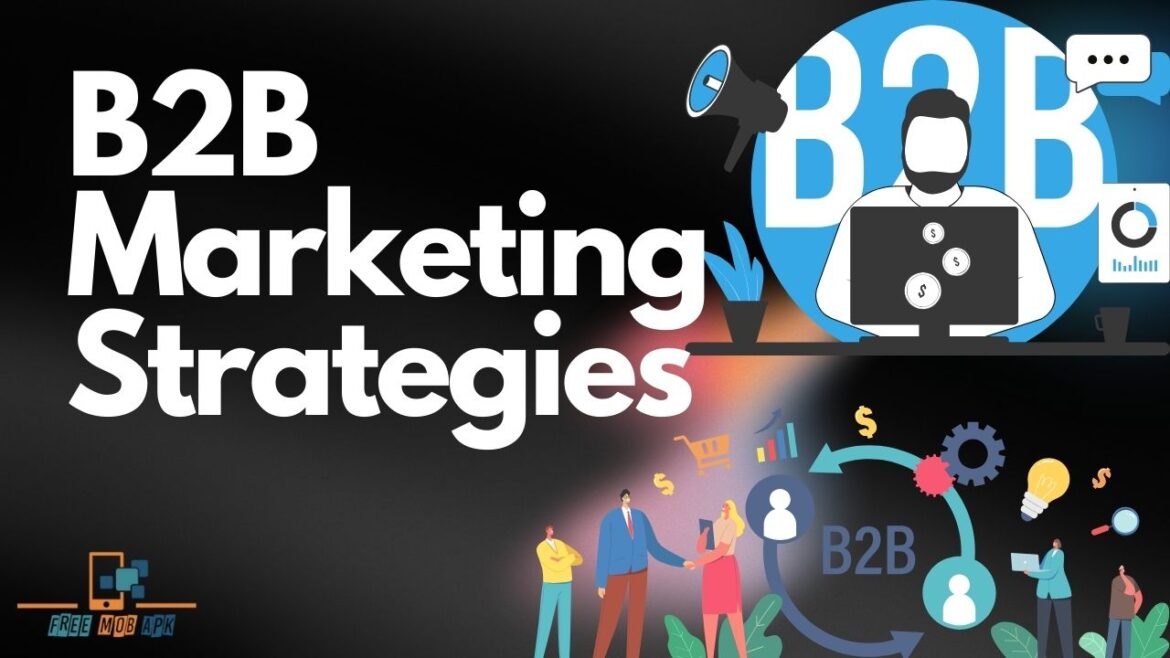Today, many companies focus not only on selling to consumers but also on offering their products and services to other businesses. This practice is known as B2B marketing, and it plays a vital role in how products and services are exchanged in the commercial world. Unlike B2C marketing, which focuses on quick conversions and emotional appeal, B2B marketing is grounded in logic, long-term value, and relationship-building.
This guide explores what B2B marketing is, how it works, and which strategies businesses use to succeed in a competitive environment.
What Is B2B Marketing?
B2B marketing stands for “business-to-business marketing,” which refers to the process of promoting products or services from one company to another. This form of marketing is typically used by manufacturers, software providers, service-based businesses, and wholesalers. The objective is to reach key decision-makers within other organizations who are responsible for making purchasing decisions.
When asking “what does B2B mean”, it simply means that the transaction involves two businesses instead of a business and a consumer. B2B businesses usually operate in niche markets with a focus on delivering measurable value and efficiency.
A Strategic Look at the B2B Market
The B2B market includes companies across various industries—technology, manufacturing, logistics, professional services, and more. These organizations engage in transactions involving bulk orders, long-term contracts, or specialized services.
Key characteristics of the B2B market include:
- Decision-making involving multiple stakeholders
- Emphasis on return on investment (ROI)
- Longer sales cycles
- Focus on business needs rather than personal emotions
Because of these features, a structured and research-backed B2B marketing approach is essential for success.
Core Components of a B2B Marketing Strategy
Building a successful B2B marketing strategy requires attention to several important elements. Below are essential areas businesses typically focus on:
Audience and Market Research
Identifying the target audience is foundational. A good B2B market analysis helps understand industry challenges, customer behaviour, and competition.
Content Marketing
B2B content marketing strategies focus on delivering valuable information through blogs, whitepapers, reports, and case studies. This type of content builds trust and showcases expertise.
Digital Presence
A strong online footprint is critical. Businesses rely on websites, SEO, and social media platforms for B2B online marketing. Search visibility and credibility matter more than aggressive promotions.
Email and Campaign Management
Email continues to be a powerful and reliable channel for engaging B2B audiences. Many firms automate communications through marketing automation B2B platforms, ensuring timely and personalized outreach.
Account-Based Marketing (ABM)
Account-Based Marketing (ABM) focuses on tailoring marketing efforts to engage specific high-value clients with personalized strategies. It is especially effective in B2B SaaS marketing and complex service-based models.
Best B2B Marketing Strategies Used by Leading Companies
Some of the best B2B marketing strategies focus on relevance, personalization, and multi-channel engagement. Examples include:
- Offering educational resources instead of sales pitches
- Running targeted LinkedIn ads for decision-makers
- Hosting webinars or virtual events for industry professionals
These methods show how modern B2B marketing campaigns are built around value delivery and thought leadership.
The Role of Brand and Messaging in B2B
Even in B2B, branding matters. A solid B2B brand strategy includes consistent messaging, clear positioning, and visual identity. Companies that communicate their values and expertise clearly tend to build stronger client relationships over time.
Examples from biggest B2B companies like IBM, Oracle, or HubSpot highlight the impact of coherent brand messaging aligned with customer needs.
Modern Developments in B2B Digital Marketing
As digital transformation accelerates, B2B digital marketing strategies continue to evolve. Some notable trends include:
- Voice search and mobile optimization
- Use of video for product demonstrations
- Using AI tools to segment customers and enhance engagement efforts.
Businesses offering B2B digital marketing services now focus more on data analysis, ROI tracking, and cross-platform consistency.
What Are B2B Marketplaces?
A B2B marketplace is a digital platform where businesses buy and sell goods or services. These platforms connect suppliers with buyers and streamline the procurement process. Examples include Alibaba, ThomasNet, and TradeIndia. If you’ve wondered what is B2B marketplace, think of it as the B2B version of Amazon—just more specialized.
Conclusion
In conclusion, B2B marketing is about much more than promotion—it’s about building trust, offering solutions, and driving value. Whether you’re crafting a B2B digital marketing plan, exploring new B2B marketing examples, or refining your industrial marketing strategy, the goal remains the same: connect meaningfully with other businesses and support their growth while growing your own.

